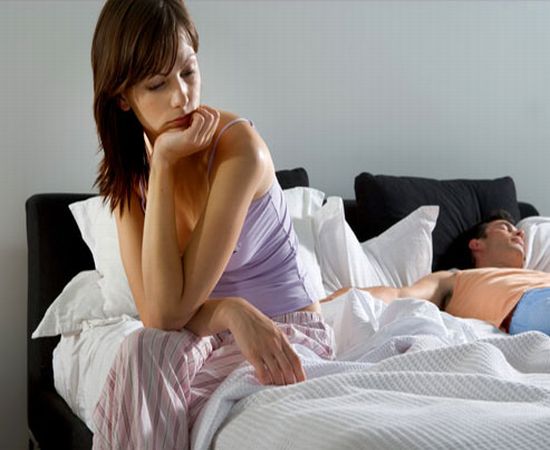There are many myths regarding sexual dysfunction in women. Female sexual dysfunction is an inability to experience pleasure during sexual intercourse. This is a topic that many women feel hesitant to discuss. Women should share their concerns as this is a treatable concern and many medicines have been developed which can help women lead a normal sex life.
Types and Causes of Sexual Dysfunction in Women
Most common types of sexual dysfunction and its causes in women are as follows:
1. Lack of sexual desire
It results in less desire or interest in sex. This can be as a result of hormonal changes, medical treatment, depression, career, child care, pregnancy, or stress.
2. Arousal disorder
This is the inability of women to get aroused during sexual activity or stay aroused for sufficient time. This can be due to lack of vaginal lubrication, inadequate stimulation, and anxiety.
3. Anorgasmia
This is lack or absence of orgasm. This can be due to medical treatment, inadequate stimulation, sexual inhibition, inexperience, guilt, bad past experience or abuse.
4. Painful intercourse
This is when women feel pain during penetration. It can be as a result of endometriosis, surgery, lack of vaginal lubrication or STD. Here is a list of causes of sexual dysfunction in women
a. Physical causes
Low estrogen level, medication, diabetes, menopause, alcoholism, drug abuse, kidney or liver disease.
b. Psychological causes
Stress, anxiety, relationship problem, boredom from regular sex routine, depression, guilt, bad experience, and fear.
Diagnosing the Problem
If you don’t feel like having sex or never feel satisfied with it then you have a sexual dysfunction. You should consult your doctor about it.
The doctor will perform pelvic examination and Pap test to rule out any physical or medical condition that may be contributing to it. The doctor can also evaluate the underlying cause of sexual dysfunction by discussing your attitude towards sex and past experiences.
Self Measures That Can Be Adopted
There are certain measures that you can adopt according to type of difficulty you are facing:
1. If you are having desire disorders then try to change the sex routine.
2. If you are unable to get aroused then use a vaginal lubricant cream. After menopause you can use estrogen cream after consulting with your doctor.
3. Anorgasmia can be treated by getting enough sexual stimulation before actual intercourse and encouraging non-coital behavior.
4. If you experience pain during intercourse then try different positions, use a lubricant or take a warm bath. If the pain still persists consult your doctor.
Therapy and Medication
Psychological therapies might help to identify the underlying cause of sexual dysfunction. The sessions may help you to open up about discussions on sex and how to cope with the related stressors. Medication can be taken after consulting the doctor. Some of the natural supplements that are being explored for enhancing the sexual function in women are herbs like gingko, yohimbe, and damiana. Natural chemicals like DHEA and L-Arginine may prove beneficial but no conclusive proof is available. These medications may help to solve the problem in future.
Frequently Asked Questions
1. Is sexual dysfunction in women curable?
This depends on the causes of sexual dysfunction. If it is due to some psychological inhibition or minor physical problem then it can be cured. But if it is due to severe ailment or disease then cure becomes difficult.
2. What is the effect of surgery on sexual dysfunction in women?
Surgery may lead to hormonal changes, blood and nerve damage. This can result in loss of desire, problems in arousal and orgasm.




